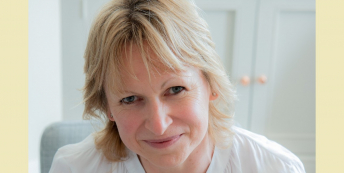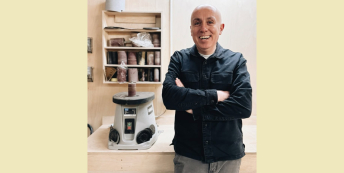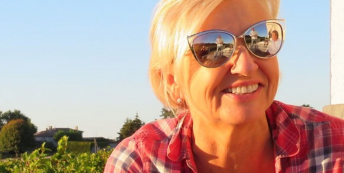“I'd begun enjoying my job less and less.”
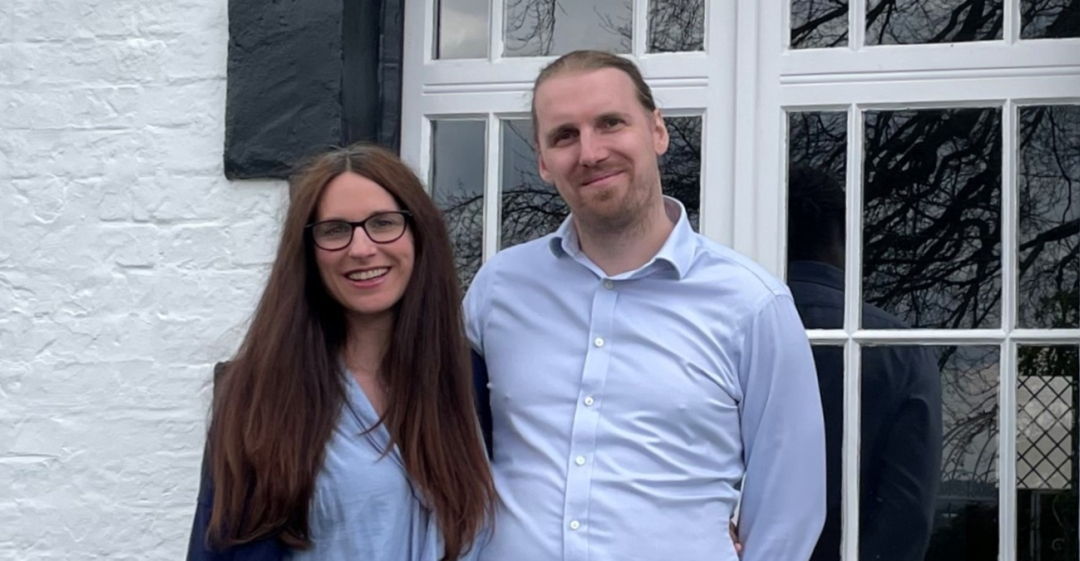
Newly Updated
What work were you doing previously?
I spent 15 years working as a Nuclear Safety Engineer.
Having gained a Masters Degree in Nuclear Physics I put my skills to use in the civil nuclear industry. Initially my work focused on developing codes to predict temperature conditions for various components inside and around a reactor core.
As my career progressed I gravitated more towards Nuclear Safety.
What are you doing now?
I run Eagle House with my wife Helen.
We provide luxury accommodation in a stunning Grade II listed residence. We have three bed and breakfast rooms as well as a cosy one bedroom self-catering Apartment.
Why did you change?
Owning and running a B&B has always been a dream that my wife and I had.
It was something we planned to do when we were older but a combination of factors made us decide to make the change early.
When was the moment you decided to make the change?
I'd begun enjoying my job as an engineer less and less.
This was largely due to changes in the way I was required to work due to COVID.
Towards the end of the pandemic, my wife was diagnosed with cancer. This made us both reassess our priorities and our general outlook on life.
How did you choose your new career?
It was something my wife and I had always dreamed about.
It gave us a chance to work for ourselves and have more time to spend together as a family.
Are you happy with the change?
Absolutely.
It's been a lot of hard work but definitely worthwhile.
What do you miss and what don't you miss?
I miss the people the most.
I worked with some fantastic engineers during my career and do miss the day-to-day interaction with them. However, as you can imagine, I meet a lot of people running a B&B and love building relationships with our customers.
I definitely don’t miss the commute. Spending at least two hours each day in the car seems almost ridiculous now.
I'm also glad I no longer have to sit in meetings that don’t seem to achieve anything.
How did you go about making the shift?
We moved house, we set up the business and I continued to work full time as an engineer for the first year.
I was able to go full-time on the business after about 18 months.
We had to learn everything it takes to run a hospitality business, from top to bottom. We’re still learning and trying to make things better every day.
I really enjoyed learning to create, develop and manage our website. Integrating the website with our booking software, payment systems and guest communications was challenging and really streamlined the work we were doing.
How did you develop (or transfer) the skills you needed for your new role?
The most obvious transferable skills are those associated with safety; general health and safety, fire regulations etc.
But the skills I used to demonstrate and document compliance are equally applicable to something like food safety.
There are also lots of soft skills I developed during my career which have proved very useful. For example, skills I'd developed interacting with clients can be equally relevant with guests at our B&B.
Likewise, systematic methods for scheduling and recording maintenance and testing are as applicable at our B&B as they were on a nuclear power plant.
What didn’t go well? What wrong turns did you take?
Setting up a business is not straightforward, there are lots of big decisions to be made.
We focused a lot of our energy on the service we wanted to provide and the customer's experience. I think we got most of this spot on.
Had we made different decisions regarding the non-guest facing experience, we could have potentially made our lives easier. Since we first started we have reconsidered who to bank with, how to run our website and what booking engine we use.
It’s hard to know if these issues may have been avoided with more research at the outset or if they were just mistakes we had to make.
How did you handle your finances to make your shift possible?
We knew that building up the business would take time.
For the first year the B&B was open, I was still working full time as an Engineer. As the number of bookings increased, I moved to part time hours. About 18 months after we started the B&B, it was my sole source of income.
What was the most difficult thing about changing?
Finally letting go of my previous job.
Leaving my job as an engineer, and the regular income it provided, was a huge psychological step.
Even though the B&B had been open for 18 months and had been doing well, for me, this really felt like the start.
What help did you get? 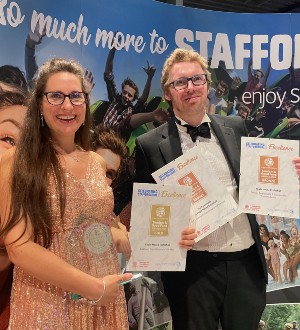
It wasn’t just a change of career, it was a change of lifestyle for me and my family.
We moved from Manchester to the countryside. The property we found for our B&B is on the edge of the countryside market town of Eccleshall. The local people and businesses have been so welcoming to us and we are really grateful for that.
What resources would you recommend to others?
I love to learn and there’s loads of information available for free.
Helen and I spend a lot of time absorbing information from books, videos, tutorials and podcasts. Whatever industry you’re in, there'll be someone talking about it online.
For more specific information, we've found it really useful to connect with local and national industry bodies or associations.
For us, these are organisations like Enjoy Staffordshire, Visit England, Visit Britain, Staffordshire Business & Environment Network (SBEN) and The Professional Association of Self-Caterers (PASC UK).
All of these organisations provide up-to-date news and information as well as opportunities to connect with other similar businesses.
What would you advise others to do in the same situation?
If you’re working for yourself, it can be difficult to say ‘no’.
It's important to have confidence in the service you’re providing and appreciate customers who praise you for good work. There’ll be lots of customers looking for exactly what you do, so concentrate on doing it well.
At the same time, understand that occasionally people will come to you looking for something slightly different. Be flexible, but understand where your boundaries are.
We caught up with Andrew recently to see how his shift was working out, one year on. Here's what he's been up to, and the biggest lessons he's learned.

What's changed for you in your career since we first published your story?
When we first opened the B&B, I continued working as an engineer for around 18 months.
At the time the article was originally published, it hadn't been long since I had left my engineering job to focus on the B&B full-time. The B&B has now been our sole source of income for approximately two years.
How do you feel about your work now?
I really enjoy running the B&B with my wife.
In 2024, we were recognised by the Staffordshire Tourist Board as the best B&B in Staffordshire, which was a huge honour. I feel a real sense of pride in the service we provide, and I love being able to tell people what I do for a living.
The change in lifestyle has been the most significant aspect. Being able to say goodbye to my daughter when she leaves for school, and being there to welcome her home, is something I truly cherish. It's something I hadn't really considered before making the shift.
What challenges have you come up against since making your shift, and how exactly have you dealt with them?
Starting out in an industry we had no prior experience in was undoubtedly challenging.
In the beginning, we were regularly faced with new situations we hadn't dealt with before, and had to quickly learn how to resolve them.
Now that we've been running the B&B for nearly four years, that happens far less often. Of course, challenges still arise, but thanks to our past experiences, we usually know where to begin when tackling any problems.
How is the financial side of things panning out, and is this what you'd expected?
When I decided to change careers, we fully understood that this would mean a drop in our household income, and we planned accordingly.
What have you learned since making your shift?
Far too much to list! We had to learn everything, from how to run a B&B to the fundamentals of managing a business.
To find out more about Andrew's business, visit https://eaglehouse-eccleshall.com
What lessons could you take from Andrew's story to use in your own career change? Let us know in the comments below.

